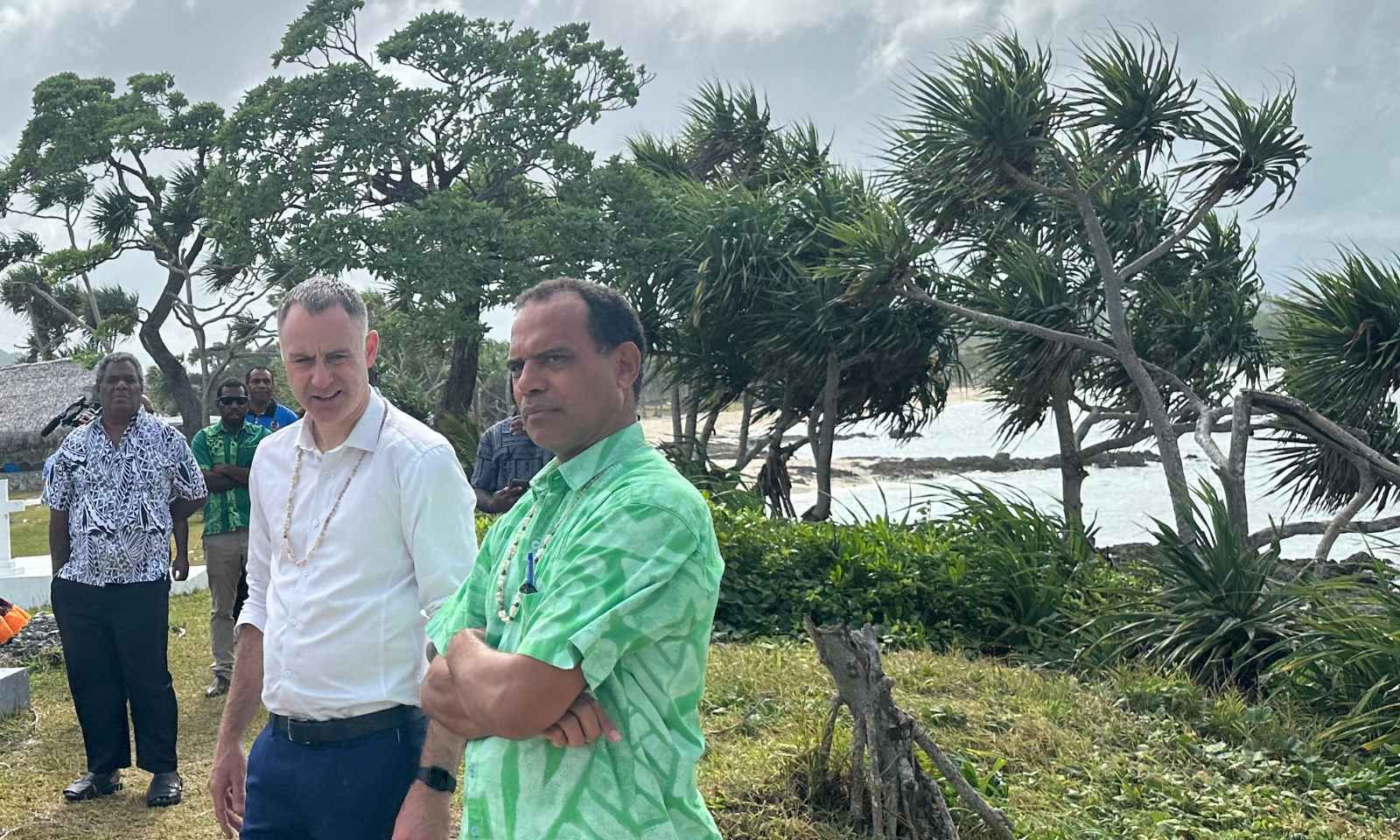

Ralph John Regenvanu is a Ni-Vanuatu anthropologist, artist and politician. He has been a Member of Parliament since September 2008.
Photo/Ralph Regenvanu Facebook
A David vs Goliath battle for climate action at the World Court
Vanuatu believes the International Court of Justice’s advisory opinion could serve as a “circuit breaker” for stalled climate negotiations.




Tyrun re-imagines Niuean love in smooth new R&B single ‘Fila’




Tyrun re-imagines Niuean love in smooth new R&B single ‘Fila’
In a historic push for climate accountability, Vanuatu is taking centre stage at the International Court of Justice (ICJ).
The small Pacific island nation is leading more than 100 countries in seeking an advisory opinion on the legal obligations of states to combat climate change.
Groundbreaking legal fight
The hearings, which began on 2 December, represent the largest number of countries ever to participate in an ICJ case, and for many Pacific nations, this marks a first.
Vanuatu, along with the Melanesian Spearhead Group, has presented arguments pushing that international law mandates countries to mitigate harm to the global climate system.
Speaking to PMN News, Ralph Regenvanu, Vanuatu’s special climate envoy, emphasised the significance of this case in redefining international responsibilities for climate accountability.
“In May this year, we had the advisory opinion issued by the International Tribunal on the Law of the Sea, which very clearly said obligations to reduce greenhouse gas emissions,” Regenvanu said.
“The law of the sea itself says that greenhouse gas emissions are a form of pollution identified under the convention of the law of the sea, which it is unlawful for states to do because it affects other states' marine environments by heating the ocean.
“So already very clearly, that is one decision under one of the international tribunals of international law.”
While small island nations and allies like Barbados strongly support Vanuatu’s stance, major emitters such as Australia and Germany argue that obligations are limited to frameworks like the Paris Agreement.
Regenvanu critiqued this perspective as “disingenuous”.
“Yesterday, Australia was trying to say that this actually wasn't a decision of the international tribunal, but very clearly it was.
“So they're already finding themselves in a very difficult situation like Germany also saying that the right to a clean environment isn't actually a right that exists for people of the world.
“They also referred to future generations as like this vague group that you can't really talk about.”
After what many are calling an underwhelming Conference of the Parties (COP29) in Azerbaijan, Regenvanu reaffirmed their resilience to fight for climate justice.
“You only need to ask our ministers who were at Baku.
“They put all their effort in, spent long nights, lots of energy, and came away with pretty much nothing.
“Incredibly frustrating, incredibly depressing, but we have no choice but to keep on doing it.”
He expressed hope that arriving at the ICJ could help find new avenues for climate action.
“But coming here to the ICJ is trying to find another avenue to get this climate action to happen because, for 30 years, we've been going to these COPs.
“We need to find some circuit breaker. And we hope that the ICJ can be one.”

Regenvanu and NZ Climate Change Minister Simon Watts in Vanuatu earlier this year. Photo/Ala Vailala
Regenvanu also sees the ecocide campaign as a potential path to hold countries accountable for climate action.
Pacific solidarity and global influence
Regenvanu highlighted the initiative at the ICJ as a demonstration of great Pacific unity.
For many Pacific nations, this is their first engagement with the ICJ.
Fiji and Sāmoa have played key roles in coordinating legal strategies, while New Zealand has provided logistical support by funding Pacific delegates to participate.
However, Regenvanu expressed disappointment in New Zealand’s less ambitious stance.
“We always expect more from New Zealand than we do from Australia.
“Australia is a high-emitting fossil-fuel producing state and we saw that in their submissions yesterday, which have been widely criticized by civil society groups and states throughout the Pacific.
“New Zealand, we always expect to be a bit better than Australia.”
Youth at the forefront
The roots of this initiative lie in youth advocacy, as highlighted by Regenvanu.
“I think in the Pacific can be very proud of our youth who were behind this whole initiative to get an advisory cream from the ICJ,
“The Pacific Island Students Fighting Climate Change were the ones who came up with this proposal.
“And then here in the Hague, right now there's so many Pacific Island youth here, participating in people's gatherings, standing outside the ICJ, putting pressure on the different countries.
“So we're really proud of the strong Pacific presence here, especially from the youth.”
The hearings are to conclude on 13 December, with the ICJ’s opinion expected to be delivered in 2025.
Watch Regenvanu's full interview here